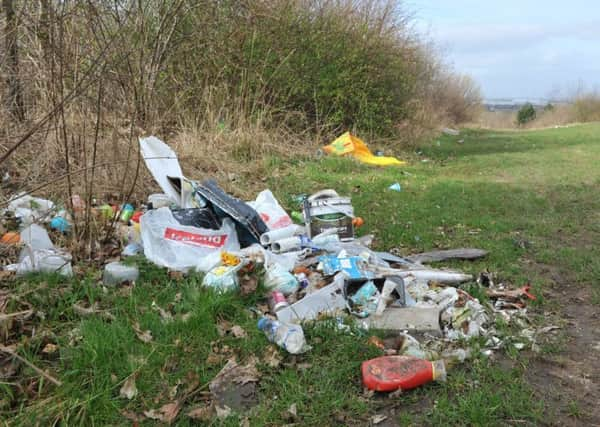Fly-tippers face having vehicles crushed as Sunderland City Council backs new powers to seize vehicles used in fly-tipping


The legal powers allow the council to seize vehicles used in waste transport or deposit offences and aim to strengthen the council’s ability to tackle environmental crime.
The Control of Waste Dealing With Seized Property (England and Wales) Regulations 2015 outline several situations where vehicles can be seized.
Advertisement
Hide AdAdvertisement
Hide AdThis includes transporting waste without a licence, unauthorised dumping, failing to ensure transfer of waste to an “authorised person” and failure to provide waste information forms when requested.
If a vehicle is seized as part of an investigation and is not then claimed within 15 working days, it can be sold or destroyed.
SCC’s deputy leader, Michael Mordey described the powers as the “latest stage in this council’s crackdown on fly-tipping in the city.”
Speaking at the Sunderland Civic Centre meeting, he said several measures would have to be put in place before powers could be enforced -including links to relevant partners such as Northumbria Police and the DVLA.
Advertisement
Hide AdAdvertisement
Hide AdThe council would also require a premises to store seized vehicles, an admin team to monitor legal process and a “working procedure” to define parameters of enforcement, the committee heard.
Coun Mordey added the cost of recovery and vehicle seizure is around £2,000 per year which could be funded from the council’s Place Management Budget or offset from the cost of vehicles seized.
He added the council will “use every tool in their arsenal to deal with a very small majority of people who think they have a right to dump waste in our city”.
Council leader Harry Trueman credited the council’s campaign to tackle litter in the city and praised residents for their support.
“I feel we’re winning the battle,” he said.
Advertisement
Hide AdAdvertisement
Hide AdSince January 2017, the council says it has updated and adopted new legal powers for environmental enforcement.
The adoptions came after a scrutiny committee recommended the council should deal with the perpetrators of environmental crime more appropriately.
The council’s head of place management, Mark Speed said vehicle seizure powers are the “latest update” in action against fly-tippers.
“Now, the council has powers to seize a vehicle, trailer or mobile plant and the contents if it’s believed they are being, have been, or will be used to commit a waste crime, such as fly-tipping,” he said.
Advertisement
Hide AdAdvertisement
Hide Ad“These are strong powers and they have been adopted because the council is prepared to use them against a selfish minority who do not help keep our city clean and green.”
The revised Environmental Enforcement Policy was introduced in February 2017 and started in April 2017.
Following the update, the council Environmental Enforcement Team have carried out more than 4,000 investigations into environmental crimes, including littering, dog fouling and fly-tipping.
This has resulted in more than 500 formal warnings being issued and 165 fines issued for waste offences.
Householders have also been taken to court for fly-tipping offences and more prosecutions are pending.
Chris Binding , Local Democracy Reporting Service